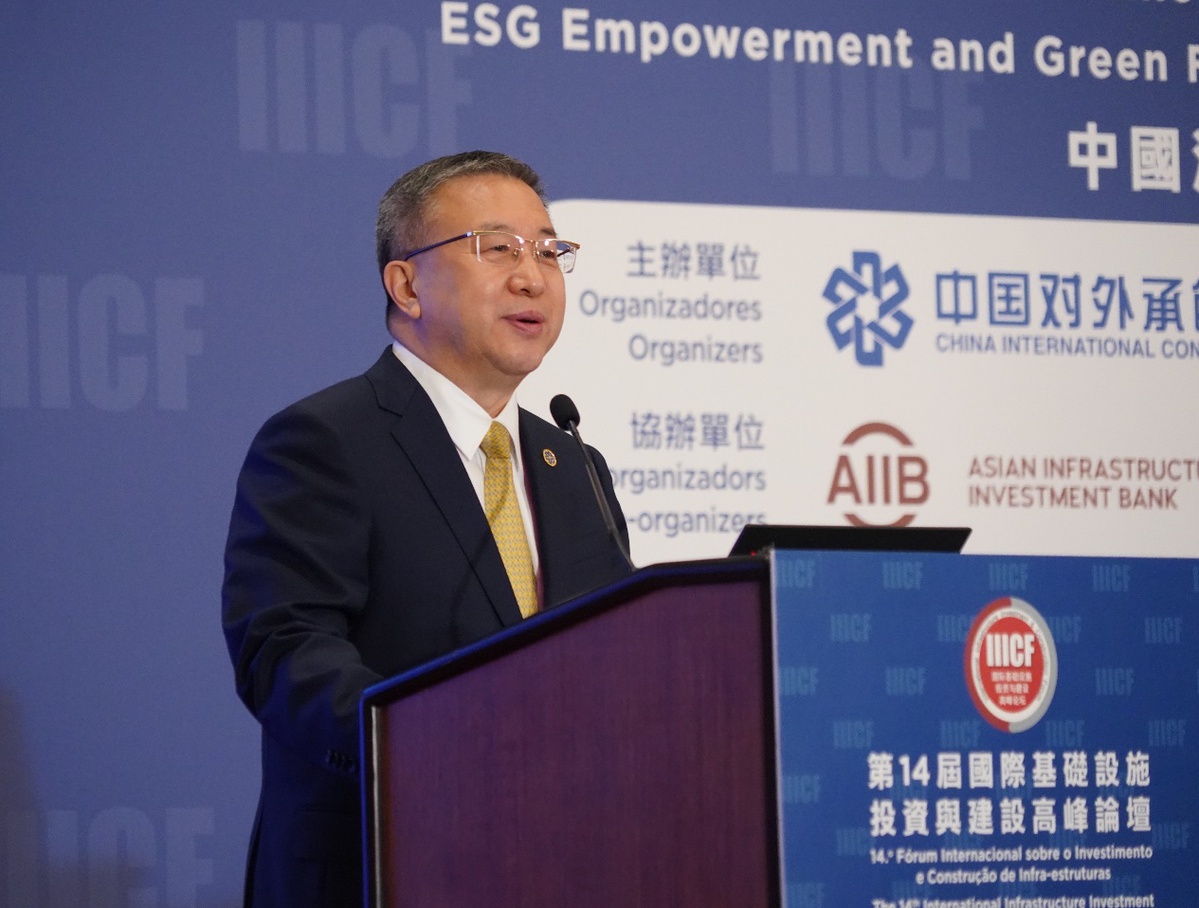ESG to guide infrastructure's green shift


Chairman of the China International Contractors Association Fang Qiuchen said that to implement ESG concepts, it is important to make good use of tools such as green finance and to coordinate the interests and concerns of all parties, as well as jointly promoting the implementation of more sustainable infrastructure projects.
This requires the participation of all relevant parties such as governments, investors, financial institutions and contractors, he added.
Regional Director of East Asia at GIZ, or the German Society for International Cooperation, Thorsten Giehler said the importance of ESG standards, coupled with the power of green finance, presents a unique opportunity to create a sustainable and resilient future.
"Through MISIP, we envision a world where sustainable infrastructure thrives, driven by innovation, collaboration, and a shared commitment to ESG principles," he said. Giehler also called on the world to seize the moment to exchange ideas, foster partnerships, and catalyze transformative action, paving the way for a brighter, greener, and more inclusive future.
ESG has become a key driver in shaping the future of business, investments, and economies worldwide, said Vice-president of Policy and Strategy at the AIIB Danny Alexander.
"The concept emphasizes the need to consider not only financial returns but also the impact of our actions on the planet and society as a whole," he said. "They are essential for ensuring that infrastructure is done well and that the necessary financing can flow."
Intended as an open and collaborative platform, MISIP was created to provide opportunities for cooperation on knowledge sharing, project financing, capacity building, and other critical workstreams. It also aims to unify key stakeholders to promote and accelerate sustainable infrastructure development that contributes to a smooth, inclusive and sustainable global recovery for all.
"It is truly exciting to see the MISIP initiative gain recognition for its role in promoting sustainable infrastructure standards and increasing in its number of members," said Alexander.
As a climate-driven, 21st-century multilateral development bank, AIIB has pledged to align all our new financing operations with the goals of the Paris Agreement by July 1, he added.
"Our Corporate Strategy highlights a target of achieving at least a 50 percent share of climate finance in our actual financing approvals by 2025 – a target we surpassed in 2022, with 56 percent of our approvals being climate-related," Alexander said.
Managing Director of Asia Pacific at the CFA Institute Nick Pollard said ESG investing is seen as both a way to lower the long-term risk profile of investments and to also earn higher returns over time. Global ESG assets are expected to hit $53 trillion by 2025, accounting for more than one-third of the $140.5 trillion in total assets under management, he said.
In the Asia Pacific region, more markets are incorporating biodiversity into their plans and frameworks, he added. Some markets even require businesses and investment firms to declare any activities that could negatively impact biodiversity-sensitive areas, Pollard explained.
"Therefore, investors need to assess biodiversity risks and opportunities in economic, investor, and social terms," he said.
Pollard also noted that accelerating the sustainable investing landscape requires a collective and concerted effort through skills, disclosure, and data.


















